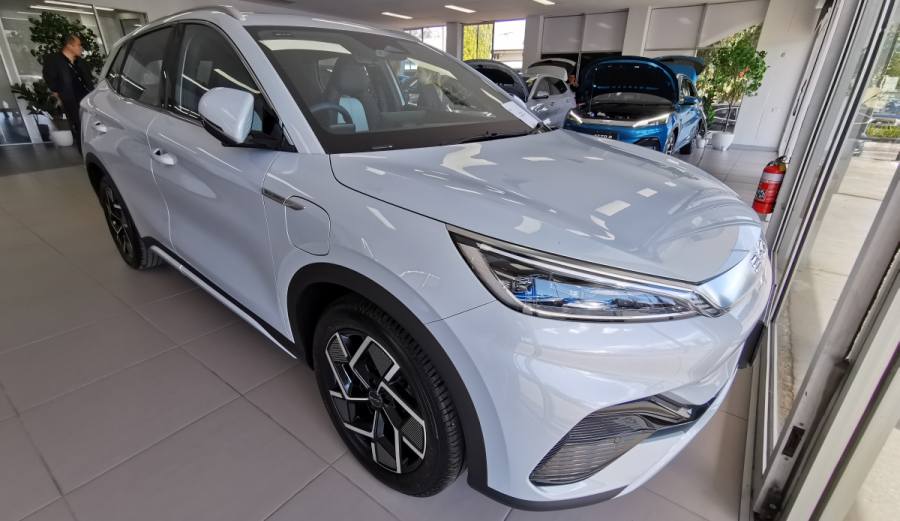
Opposition Leader Peter Dutton has vowed to halve fuel excise for 12 months and abolish incoming fuel efficiency penalties. This potentially reduces some costs for the worst gas-guzzlers, but does nothing to permanently solve the most expensive thing about them: the amount of petrol swallowed up every time these thirsty machines hit the road.
Electric vehicles famously enjoy the financial benefit of being able to whoosh straight past petrol stations without needing to fill up, but they also enjoy lucrative FBT exemptions that don’t rely on an election outcome or new legislation.
Plug-in hybrid vehicles (PHEVs) lost eligibility for the FBT exemption on 1 April 2025, but battery-electric vehicles and hydrogen fuel cell vehicles still qualify, offering far greater savings than temporarily reduced petrol taxes.
Under this policy, a driver who leases a $60,000 car could save close to $12,000 a year if they bought an EV through a novated lease instead of a petrol car.
What Is the EV FBT Exemption?
The EV FBT exemption allows you to lease an eligible electric vehicle through your employer without paying Fringe Benefits Tax. Your car repayments, insurance, registration, servicing, and even charging costs are paid from your pre-tax salary.
To qualify, your car must be:
- Fully electric or hydrogen fuel cell-powered (no hybrids);
- First sold and used after 1 July 2022;
- Priced below the Luxury Car Tax threshold (approximately $89,000–$91,000);
- Provided via an employer arrangement (usually a novated lease).
Popular eligible EVs include the Tesla Model 3 and Y, BYD Atto 3, Kia EV6, Hyundai Kona Electric, Ioniq 5, and Polestar 2.

A BYD Atto, one of the EVs eligible for FBT exemptions.
EV Charging Equipment Is Eligible Too
Not only can you leave the tax collector in the dust with your new EV, you can even keep charging equipment out of their grasp.
Depending on your novated lease provider, you could salary-sacrifice the hardware and installation costs of a home EV charger if they are offered in your lease package. Charging accessories like cables are also eligible for reimbursement, along with insurance and registration costs.
Even ongoing electricity costs can be claimable pre-tax through your lease, as well as public charging costs.

Donato Quattrocchi of DQ Solar & Electrical speaks with SolarQuotes founder Finn Peacock about a difficult install of a Sigenergy home EV charger.
Novated Leases: How They Work
A novated lease involves three parties: you, your employer, and a leasing provider. Here’s the typical process:
- Choose your EV: Avoid dealer-offered extras initially (e.g., window tinting), as they can inflate stamp duty. It’s usually cheaper to add these later;
- Obtain quotes: Leasing quotes often change. Secure at least two formal approvals to confirm exact costs;
- Formal approval: Expect to provide payslips, budgets, and undergo credit checks. Allow a few days;
- Take delivery: Vehicle collection is usually quick, though waiting periods may vary;
- Take in pre-tax savings: Your employer deducts costs pre-tax, reducing your taxable income.
How Much Money Could You Save?
The exact savings you gain from the EV FBT exemption depend on your individual arrangement with your employer. Because no Fringe Benefits Tax is payable on eligible electric vehicles, there’s significant potential for both employer and employee to benefit—but how the savings are shared is ultimately decided between you and your employer.
Typically, employees negotiate to salary-sacrifice all running costs (such as lease payments, registration, insurance, servicing, and charging) from their pre-tax income. This reduces taxable income, delivering substantial tax savings. However, your specific savings depend on factors like income level, car value, lease structure, and the agreement reached with your employer regarding how the savings are allocated.
To fully understand how much you could personally save, speak directly with your HR department or lease provider and get a tailored quote based on your situation.
When Does the EV FBT Exemption End?
There’s currently no set expiry date for battery-electric vehicles (BEVs) or hydrogen fuel cell vehicles. A review is scheduled around mid-2027, but until then, you’re safe to proceed.
Thinking to Go Electric?
With significant tax savings and lower running costs, a novated lease can be a smarter way to own an electric vehicle than buying outright. And if you’re thinking about adding a home EV charger into the equation, check out our comprehensive guide on which brands are best. Just be sure to avoid the headaches that can come with a complicated EV charger install.
Or alternatively, you can get the biggest petrol-guzzling beast you can squeeze into your driveway, and pray that powering a car with petrol magically stops being orders of magnitude more expensive than electricity (especially when paired with solar).
Additional contributions to this article by Bavo Delbeke.

 RSS - Posts
RSS - Posts



and of course, they brought this in the year I retired…
But good luck to those who can take advantage of it.
Fbt does nothing for self funded retirement who want to go EV.
It is about time we were included in these sort of incentives.
I’m hearing you – Self funded retirees like us are pretty much excluded from everything until you hit 67, even though you have no real income – you cant access services or assistance such as a health card etc unless you go on the dole, which defeats the purpose of being a self funded retiree!.
Surely tax free withdrawals from super for over 60s is enough of an incentive.
You stated that the EV FBT exemption is scheduled for a review in mid 2027.
Do you have any updates on election promises around this policy?
I thought I had heard someone say the liberals plan to abolish this exemption?
They were critical of it when it was introduced, but haven’t made any election promises to scrap it, so far at least. They do plan to abolish the New Vehicle Efficiency Standard targeting fuel efficiency, as referred to in the article.
If EVs are being subsidised to a degree that ICEVs are not then that’s putting the government’s thumb, and the taxpayer’s money, on the scales. If they want to cut spending that’s an obvious decision. Yes halving the excise also costs money, but that helps ordinary Australians with cost of living. Those getting a new $60,000-$89,000 car via FBT and their employer aren’t likely to be battlers.
I have a big problem about FBT exemptions and private use vehicles novated through an employer. But it is beneficial in increasing takeup of EVs as a temporary measure.
I have no objection to tax deductibility of vehicles used for genuine work purposes eg a tradesperson or sales representative who has to travel to worksites or clients to conduct their business, but purely for business use. Driving to your workplace is not business use as defined by tax law.
Objection 1: The great majority of novated leases are for vehicles used for private purposes. 2: It is discriminatory. The many people who can’t novate through an employer as well as people on lower incomes can’t access it. 3: While it accountants and car importers/dealers are wealthier, it robs the tax system of much needed cash for much more important purposes.
Tax avoidance schemes tend to be questionable, and yes I’ve benefited in the past. Everybody has to travel to work and it’s not generally tax deductible, but if you belong to the right scheme then you can transfer part of that cost to the taxpayer. Until the tax legislation is amended it will continue to provide legal avenues for selected kinds of employees to disproportionately benefit. Perhaps the bigger issue IMHO is all the expensive car brands and\or models with government plates being driven around by folk who clearly aren’t in the office. Are government directors, executives, and managers so poorly paid, or so part time and\or casual, that they need to rely on the generosity of the taxpayer to ‘afford’ a set of wheels? : – P
Swings and roundabouts occur for everyone.
In response to your objections:
1. private type vehicles would typically be used by sales and professional people for their work – not all of us need nor want a ute, van or truck
2. Many people cannot avail themselves of all of the other (generous) tax write-offs given to tradies and (multinational) companies either – this is how the current tax system is organised
3. If I’m able to obtain a novated lease due to my hard work over the years and current circumstances, so be it – I’ve never shirked contributing my fair share of tax over the years, so perhaps this is payback time. If there are perceived problems with the tax system, then fix the SYSTEM, not tinker at the edges by removing items like this. There are many things that tax should support – health, education, infrastructure, defence etc – the real nation-building stuff. As opposed to rorting of systems (e.g. company handouts during Covid, ATO consultant tax avoidance schemes).
For those who may have never heard of them and you have a partner whose income or lack thereof makes the sums worthwhile, check out associate leasing options for a win/win/win situation.